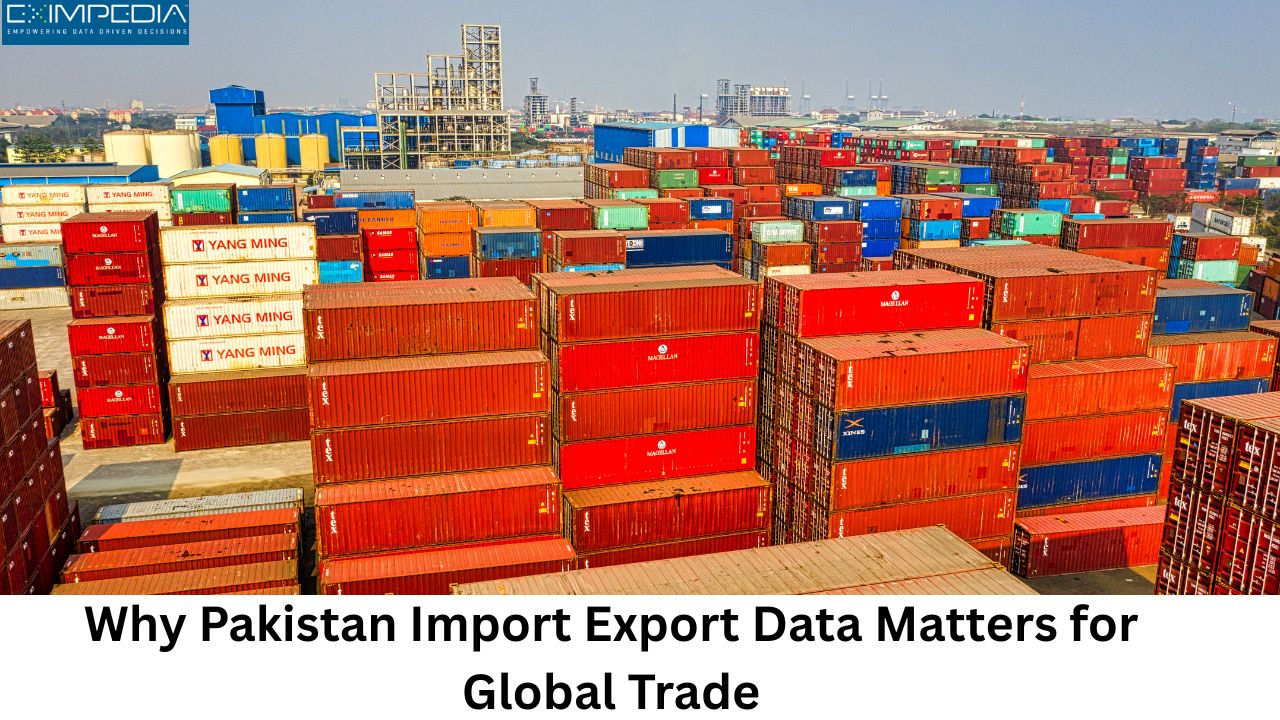
Understanding Pakistan’s trade activity is essential for companies that want to explore new markets, track product movement, and study global demand patterns. Reliable Pakistan Import Export Data helps firms evaluate real trade performance, understand where products are headed, and identify active buyers and suppliers across various industries.
Pakistan’s Role in Global Trade
Pakistan is connected to important trade routes and supplies a wide range of goods to the world. Companies use Pakistan Customs Data to evaluate how the country participates in global trade and how product flows change throughout the year. The data includes information from customs authorities, ports, and shipping records, giving traders a complete picture of what is moving across borders.
Trade Transparency Through Detailed Data
When businesses study Pakistan Trade Data, they can review import and export volumes for different product categories. This includes HS codes, shipment values, and monthly trends that help companies understand which goods are in demand. By examining this information, traders can identify profitable product lines, understand seasonal changes, and plan their market strategies.
Real Shipment-Level Insights
Every shipment tells a story. Access to Pakistan Shipment Data helps businesses see how often goods move, which countries send or receive them, and which companies are involved in the transactions. These insights make it easier for traders to track product routes and evaluate the reliability of potential business partners. Shipment information helps in forecasting demand and understanding trade connections between Pakistan and other countries.
Understanding Pakistan’s Export Structure
Companies around the world use Pakistan Export Data to study what Pakistan sells globally. The country exports several key products, and detailed export information includes HS code mapping, shipment values, and main destination countries. This helps international buyers understand where they can source specific goods and how strong Pakistan’s presence is in global markets.
Export data also reveals top-performing suppliers, shipment frequency, and competitive activity. Such insights help businesses compare competitors and find new opportunities for sourcing or selling products.
Understanding Pakistan’s Import Needs
While exports show what Pakistan sells, Pakistan Import Data highlights what the country needs. Import records include supplier countries, product descriptions, HS codes, and top ports handling incoming goods. Traders use this information to understand which items Pakistan buys the most and which companies are consistently engaged in importing.
This helps foreign suppliers identify which goods are in demand and approach the right buyers. Local traders can use it to compare supplier options and make better purchasing decisions.
Finding Valid Buyers and Suppliers
Business success often depends on identifying trustworthy partners. Companies rely on Pakistan importers list to find active businesses, evaluate shipment quantities, and analyze trade patterns. This makes it easier to build connections with genuine importers and exporters who are consistently involved in international trade.
By studying shipment trends and business profiles, traders can reduce risks and form long-term partnerships based on data, not guesswork.
Better Planning for Supply Chain and Logistics
Knowing how trade moves allows companies to plan logistics with fewer risks. When firms evaluate Export Data Pakistan, they can track movement patterns and study which ports or routes are used most often. This helps in optimizing delivery time, reducing freight costs, and choosing the right transport routes.
Companies can also prepare for seasonal demand or supply disruptions by analyzing long-term shipment activity.
Data-Driven Decisions for Growth
Businesses across the world depend on clear trade insights to grow internationally. Detailed Pakistan Import Data Pakistan allows companies to forecast demand, prepare for new market entries, and adjust their pricing by understanding market competition. When traders review historical records alongside current data, they can build strategies based on facts and stay ahead of market shifts.
The single mention of the business name here: Eximpedia offers access to these types of records, helping traders make informed decisions backed by real shipment details.
Strengthening International Competitiveness
Trade intelligence also helps businesses study the competition. By analyzing Pakistan Pakistan Importers List, companies can track who is actively importing specific products, where they source them from, and how trade volume changes over time. These insights allow firms to adjust their product offerings, plan marketing strategies, and build competitive advantages.
Import and export patterns reveal which markets are growing and which are shrinking, giving traders the information they need to stay relevant in a fast-changing global environment.
Conclusion
Pakistan’s trade data helps companies understand markets, identify reliable partners, and plan long-term growth strategies. Whether the goal is to explore new products, study shipment movements, analyze buyer behavior, or track global demand, detailed trade records play a central role. With reliable access to export import data provider services, businesses can make smarter decisions and compete more confidently in global trade.
pakistan Import Export Data
pakistan Customs Data
pakistan Trade Data
pakistan Shipment Data
pakistan Export Data
pakistan Import Data
Export Data pakistan
Import Data pakistan
pakistan Importers List

Eximpedia is a leading data-driven platform for global import-export intelligence, offering a comprehensive dashboard with trade data from 130+ countries. It delivers accurate, customized, and reliable insights to track trends and identify market opportunities.